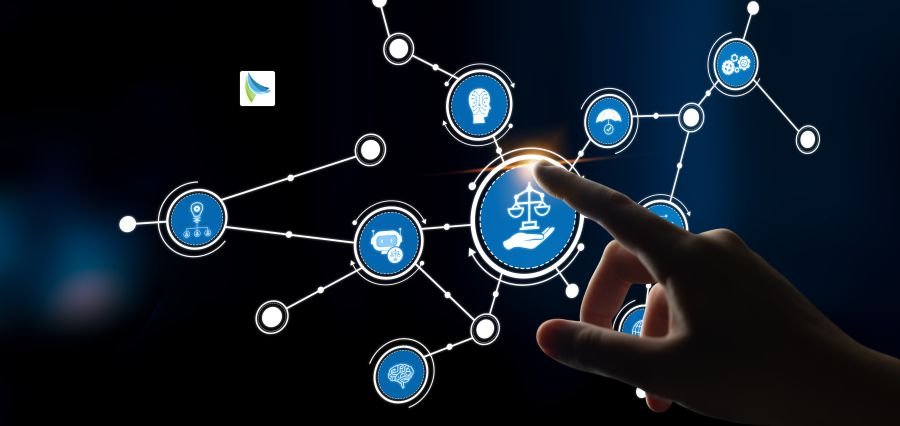With the rapidly changing world of work today, HR leadership is now a leading force for organizational resilience, strategy, and culture. No longer confined to old-fashioned administrative tasks, HR leaders today are cultural architects, business influencers, and strategic partners. As organizational complexity grows through globalization, digitalization, and shifting employee expectations, effective HR leadership means possessing a special set of competencies.
Let us then talk about the competencies that are truly great HR leaders in today’s organizations.
- Business Acumen and Strategic Thinking
Strategic thinking is the foundation of today’s HR leadership. It is the ability HR leaders should have to understand the organizational goals, forces of the industry, and issues of operations to connect human capital activities to the business strategy. This requires deep business model acumen, industry drivers, and finance drivers.
Strategic HR leaders are not in response mode to transform; they expect it. They apply workforce analytics, succession planning, and organizational design to drive performance and growth in advance. Their capacity to convert business needs into people strategies differentiates them.
- Emotional Intelligence and Empathy
The modern workplace needs leaders who can relate on the human level. Emotional intelligence the ability to know, understand, and manage one’s own emotions and empathize with other people will have to become the foundation of HR leadership. This is particularly a valuable skill when handling conflict, diversity, or delicate employee matters.
Emotional HR leaders establish trust, boost morale, and create inclusive cultures. They’re active listeners, open communicators, and empathetic leaders that are even more vital during the post-pandemic era.
- Change Management Capabilities
Organizations today live with change all the time adapting to new technologies, adapting needs of the marketplace, and changing regulations. Effective HR leadership also entails being capable of leading and managing change with confidence.
Change management is leading people through change, minimizing resistance, and maintaining productivity in times of uncertainty. Successful HR leaders at this skill develop adaptable organizations capable of thriving in the midst of disruption. They create clear communications plans, involve stakeholders, and make employees feel ready in the change process.
- Technological Acumen and Digital Proficiency
As technology keeps shaping every other field of work, digital platforms and tools should be the domain of digital proficiency of HR leaders. From cloud-based HR systems to AI-based hiring and analytics, modern HR leadership cannot be kept insulated from technology.
Digital fluency can help HR professionals make informed data-driven decisions, automate routine tasks, and enhance employee engagement. Besides this, care must be taken to be aware of future trends such as remote work technology, talent management platforms, and on board through digital channels so that a future-proof HR function can be established.
- Diversity, Equity, and Inclusion (DEI) Advocacy
The modern-day workforce is more diverse than ever. Diversity, equity, and inclusion are not only ethical requirements, but they’re also business requirements. HR leadership success propels DEI efforts from compliance to creating truly inclusive cultures.
This involves developing equitable hiring practices, offering equal opportunities for growth, and developing environments where everyone can contribute. HR leaders should be champions and advocates for underrepresented groups and policy reforms and visibility across the organization.
- Talent Development and Coaching Skills
One of the most important areas of HR leadership is talent development. Organizations thrive when their talent is given freedom to grow within them. HR leaders must invest in ongoing learning, employee growth, and leadership pipelines.
It includes identifying skill gaps, offering learning opportunities, mentoring future leaders, and establishing growth mindset culture. Coaching skills are particularly valuable as they enable HR leaders to help others navigate their life and career growth.
- Resilience and Adaptability
The pace of change and the requirements of leadership require HR professionals to stay cool, grounded, and nimble. Strong HR leadership can cause weather storms, respond in a positive way to crises, and show equanimity in times of crisis.
Resilience is not about personal toughness it’s about empowering teams to react and rebound. Whatever it is managing layoffs, weathering workforce transformation, or leading in crisis successful HR leaders always prioritize people-first solutions as the hub of their practice.
- Ethical Judgement and Integrity
HR practitioners are generally entrusted with confidential information and decisions that can potentially affect people’s careers and lives. Exceptional HR leadership is built upon unwavering ethical standards of behavior and integrity to act in fairness, privacy, and responsibility.
Upholding ethical standards brings confidence among the organization members and guarantees that company values are observed by all the HR practices. Integrity leaders establish truthful and respectful cultures.
- Communication and Influence
Communication is among the HR leadership building block skills. From creating effective policies to having tough conversations, HR leaders must be open, persuasive, and empathetic communicators.
And then there is the skill of influencing by indirect power HR leaders must influence senior management, collaborate across departments, and advocate for employee interests. Excellent communication builds alignment, reduces misunderstandings, and promotes transparency.
Final Thoughts
Effective HR leadership of today’s organization is many-sided. It’s business acumen and emotional intelligence, IT and human kindliness, and strategic thinking and compassion. With work increasingly dynamic in nature, so too the skill of those that lead it. The optimal HR leaders are the inquiring, learning-for-the-sake-of-it ones who have passion for the wellness and thriving of both the people and the company.
Finally, HR leadership has nothing to do with people management it’s about empowering them. It’s about creating workplaces that help individuals thrive, contribute, and grow by design. Being the custodians of culture and change, HR leaders are the ones who can bring the best out of future-proofed organizations to life.
Read More: Top 5 HR Interview Questions and How to Answer Them Confidently












